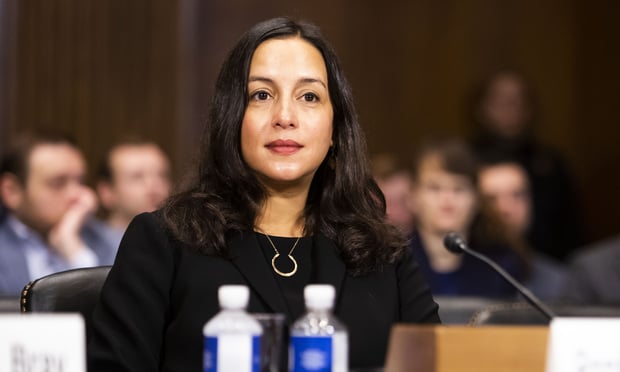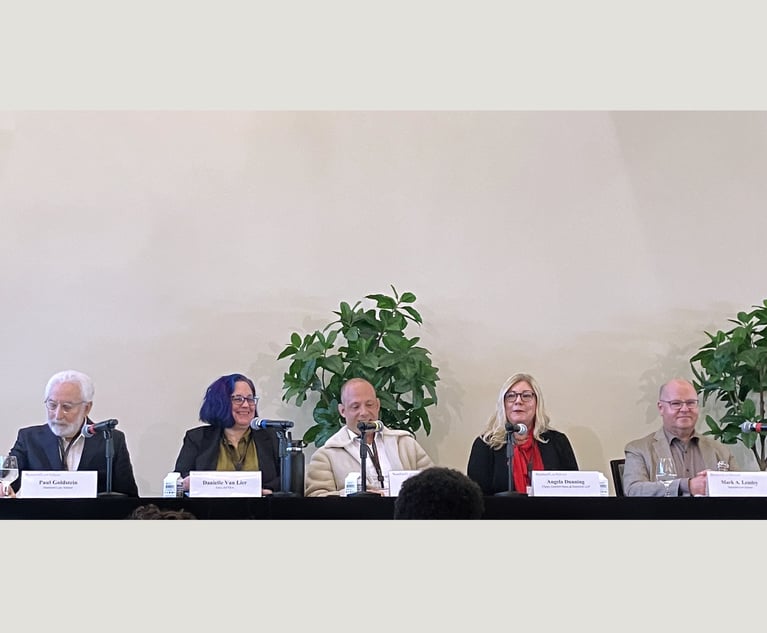Statewide stay-at-home orders have spurred new creative endeavors for many people, and now, perhaps a first husband-and-wife amicus brief in a key U.S. Supreme Court case.
The Supreme Court case, scheduled for telephonic arguments on May 6, is Trump v. Pennsylvania, consolidated with the case Little Sisters of the Poor v. Pennsylvania. The core issue is whether the Trump administration had authority under the Affordable Care Act and Religious Freedom Restoration Act to broaden the refusal of employers to provide contraceptive health coverage under the ACA. The cases involve other issues, including whether the appellate court was wrong to impose a nationwide preliminary injunction barring implementation of the expanded rule.

 Professor Mila Sohoni testifies before the Senate Judiciary Committee in February on universal injunctions. Credit: Diego M. Radzinschi / ALM
Professor Mila Sohoni testifies before the Senate Judiciary Committee in February on universal injunctions. Credit: Diego M. Radzinschi / ALM








